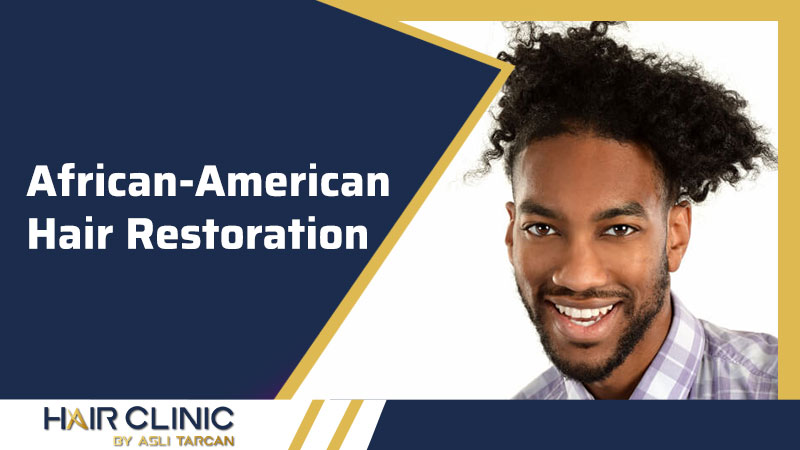African American Hair Restoration. In some ways, there is a difference between African American and Caucasian patients in hair transplantation. Like other patients of other African American races, they can also benefit from the benefits of hair transplantation. This is where African American hair restoration comes into play.
Regardless of the race, you come from, one thing is for sure and that the hair restoration surgery procedure is the same for all competitions and is as successful and effective as reported by the International Society of Hair Restoration Surgery. Regardless of the patient’s national background, there may be only a few variations on hair transplantation from one patient to another.
African American hair loss is a common problem, affecting both men and women. Without professional intervention and treatment, hair loss can negatively affect your self-confidence and self-esteem. To schedule an appointment, book an online consultation, or call the office to speak with a board member today.
What is the hair loss of African Americans?
African American hair loss affects black men and women. Sometimes, it is due to genetics. Other times, it is the result of lifestyle factors such as stress or poor nutrition. Regardless of the underlying cause, African American hair loss is a common problem affecting black people of all ages. Fortunately, with timely intervention and treatment, it can be treated.
Why is African American hair restoration unique?
African American hair restoration is unique because of its characteristic feature of curly hair. Black curls are different from other curly hair. Although the hair transplant procedures performed on Asian and Caucasian hair seem simpler and more natural, the result of the African American hair transplant is better.
In addition, the individual selection of follicles can make the process difficult.
However, in our clinic, we are equipped with the latest tools and specialist surgeons, who make the procedure easier and more comfortable for the client.
What are the symptoms of African American hair loss?
Hair loss is not always obvious. This is especially true if hair loss occurs gradually. However, there are signs to look out for, such as:
- Gradual thinning at the top of your head
- Ponytails or braids that do not feel so thick
- Increased visibility on the scalp
- Sudden relaxation of the hair
- Irregular or bald spots
As hair loss progresses, you may also find it difficult to attach hair extensions or weaves.
We use advanced and latest methods of black hair restoration. Our experts pay great attention and attention to the process of harvesting and chopping. Each follicular unit is dissected and collected separately to avoid keloid marks. Keloid scars are a common problem that occurs on darker skin due to hair transplant procedures. However, we do preliminary tests to observe the healing rate and time of the skin.
What is alopecia areata?
Lack of alopecia is the leading cause of African American hair loss. Occurs when chemicals, heat, or tight hairstyles pull and damage the roots of your hair. This type of hair loss is especially common if you regularly wear braids, dreadlocks, or other types of hair extensions.
What can I do to prevent African American hair loss?
- Wear loose braids or dreadlocks
- Remove your braids after three months
- Removing weaving or hair extensions every eight weeks
- Minimize the use of iron, hairdryer, and iron
Hair transplant procedure
What exactly is the procedure in a hair transplant procedure? A donor is required for this and from the back of the head, from the position of the donor. Small heads and strands of hair are taken or collected by surgeons in a hair transplant procedure.
The scar is minimal since the donor area is closed with sutures in a very thin line. The donor scalp is divided into a number of plugs or grafts and the transplant is performed on the bald area of the recipient on the scalp.
What is the result after the hair transplant procedure? The transplanted hair begins to fall out as soon as the hair transplant is completed. Hair growth is observed about sixty days after the completion of the hair transplant procedure. The hair begins to acquire a natural appearance after about six months.
Benefits of hair transplantation
After that, hair growth remains fairly stable. African Americans can enjoy many benefits from hair transplantation. As the hair is curly, it looks thick and dense. A Caucasian patient suffering from hair loss can not take advantage of it compared to hair transplants in African Americans suffering from advanced hair loss.
In other ethnic groups, a lot of donor hair is needed in a hair restoration surgery compared to African American hair restoration. It is the thick and curly hair texture in African Americans that proves to be very advantageous. However, there are some disadvantages to hair transplants in people who are African American.
Experienced complications
Some complications can be experienced after surgery. Hair growth, colloids, and skin discoloration are some of the complications that can occur. On dark skin, prominent and irregular scars, as well as colloids, appear. To prevent such a complication, it is better to do a small experiment in hair transplantation.
After the hair transplant procedure, the coloring problems that African Americans also face could also be reduced or increased. Another common issue is the hairs that grow as the curls grow in the individual
You can also reduce the risk of African American hair loss by working with a professional stylist. Instead of dying your hair or using harsh chemicals at home, work with a hairdresser.
What Should I Do If I Have African American Hair Loss?
If you notice that you are losing significant hair, contact our team. After a thorough examination, review of your medical history, and discussion of your symptoms, the team can develop a customized care plan to suit your personal needs.
Ultimately, the goal of the team is to prevent further hair loss while restoring your confidence and self-esteem.
If you experience African American hair loss, make an appointment at our clinic. Book an online consultation or call the office to talk to a team member for African American hair restoration.



